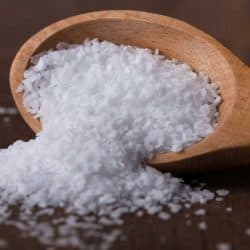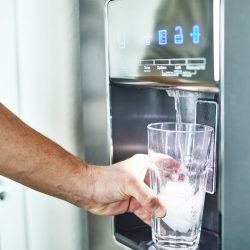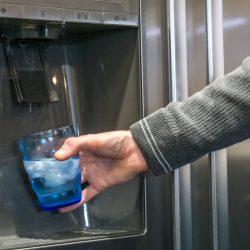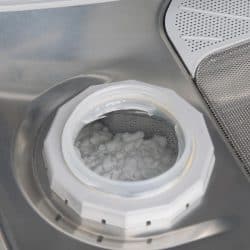Finding new ways to clean the drinking water in your home can sometimes be easier said than done. For example, do you have super hard, salty water where you live and don't know what to do? If you use a water filter on your sink's faucet or have one installed, will it help?
Luckily, we've done some digging and have the answers to these questions below!
If you're dealing with salty tap water in your home, using a water filter is a good way to remove the excess sodium and improve water quality. Generally, a water filter will strip tap water of any impurities, including high salt content, making this a perfect solution.
On top of that, tap water is treated with chemicals during its cleaning cycle, so a water filter should also make it safer for you to consume.
As we begin this article, we will cover all things water filters and discuss their many benefits. Whether you have extra salty tap water, want to improve the taste/quality of your home's water, or have additional questions: we're here to help. With that said, let's dive right into this topic!
Do Water Filters Remove Salt?
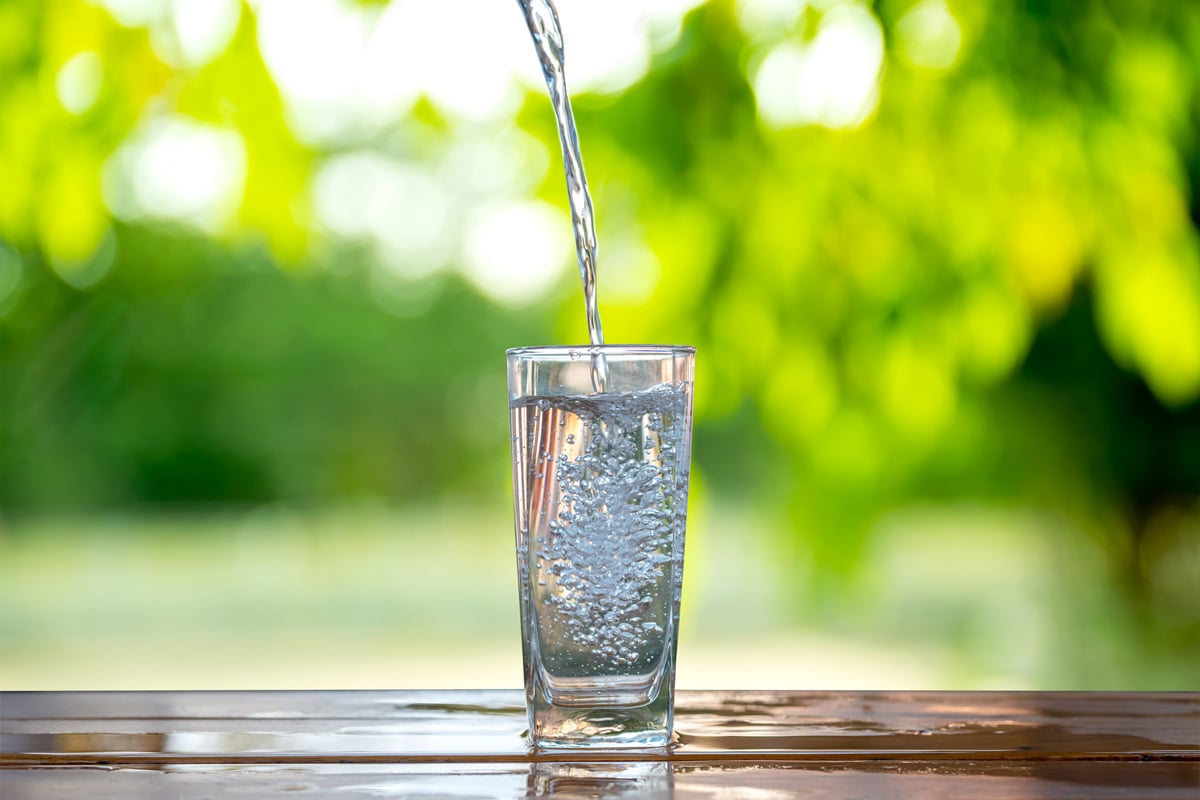
Yes! Most water filtration systems can remove salt and other impurities from water. Usually, you want to find a reverse osmosis water filtering system for your salty tap water, as they do the best job removing it.
On top of sodium in your drinking water, the tap may contain other additives and impurities, so filtration is a good idea.
Even though tap water should be pretty safe to drink, chemicals are used to treat it. Over time, those added ingredients can affect us and make the water in a home taste funny.
Therefore, you want to try and filter the salt as well as all other added ingredients from your drinking water. The more pure and untouched, the better!
Of course, there are plenty of water filtering options, whether installing a system or using a specialty container. We'll dive into these options further throughout this post: so don't worry!
What Does A Water Filtration System Do?
For those unfamiliar with a water filtration system, think of this as a way to deep clean your drinking water. As we mentioned, most tap water is treated with chemicals, often lowering its quality.
On top of that, the sodium levels in many people's drinking water are very high. Not only can that become an issue for people sensitive to sodium intake, but it can also negatively affect the taste of your water.
Many experts claim that water filtering systems can successfully remove unwanted impurities from water, such as sediment, taste and odor, hardness, and bacteria.
Therefore, when you filter the tap water in your house, you improve its quality and remove those added impurities. The taste of your tap water will also improve significantly, so this is a win-win.
Even though some people may raise an eyebrow at paying for an additional water filtration system, almost everyone that has one says they can't imagine life without one.
Once you have clean drinking water, it's hard to go back.
How Much Salt Should Drinking Water Have?
Although there isn't a technical cap for salt in drinking water, state and federal agencies recommend that sodium levels not exceed 20 milligrams per liter for people with low-sodium diets.
In addition, these agencies also suggest water shouldn't exceed 270 mg/L for people on moderately restricted sodium diets. As we said before, extra salty drinking water won't only taste weird but can also be bad for your health.
Depending on where you live and how that city treats water, you could run into more salt content than you're allowed to intake. So, purchasing a water filtering system may be your only choice to stay healthy.
If not, you will have to buy bottled water, which isn't sustainable or affordable.
Installing a filter system near your sink shouldn't be too pricey, depending on the installation, so overall, we recommend doing this if salt becomes a problem for you.
Again, it's always better to be safe than sorry when it comes to your health.
Is It Bad To Drink Water With High Sodium Content?
In general, drinking tap water with high sodium shouldn't affect people without underlying health concerns. For example, if you have a medical condition such as high blood pressure, or certain heart, kidney, or liver diseases, that's when too much salt in your water can become severe.
It's also worth mentioning that even people with normal blood pressure and no underlying health concerns can be negatively impacted by high sodium intake.
According to a study, in about one-third of people with normal blood pressure, eating a high-salt diet causes their blood pressure to rise.
Not only can this be problematic for those with health problems: but also for fully healthy people.
When you consume too much salt, drinking or eating it, it causes your body to hold more water. With too much water in your system, you can swell up and become uncomfortable/immobile.
What Should Normal Tap Water Taste Like?
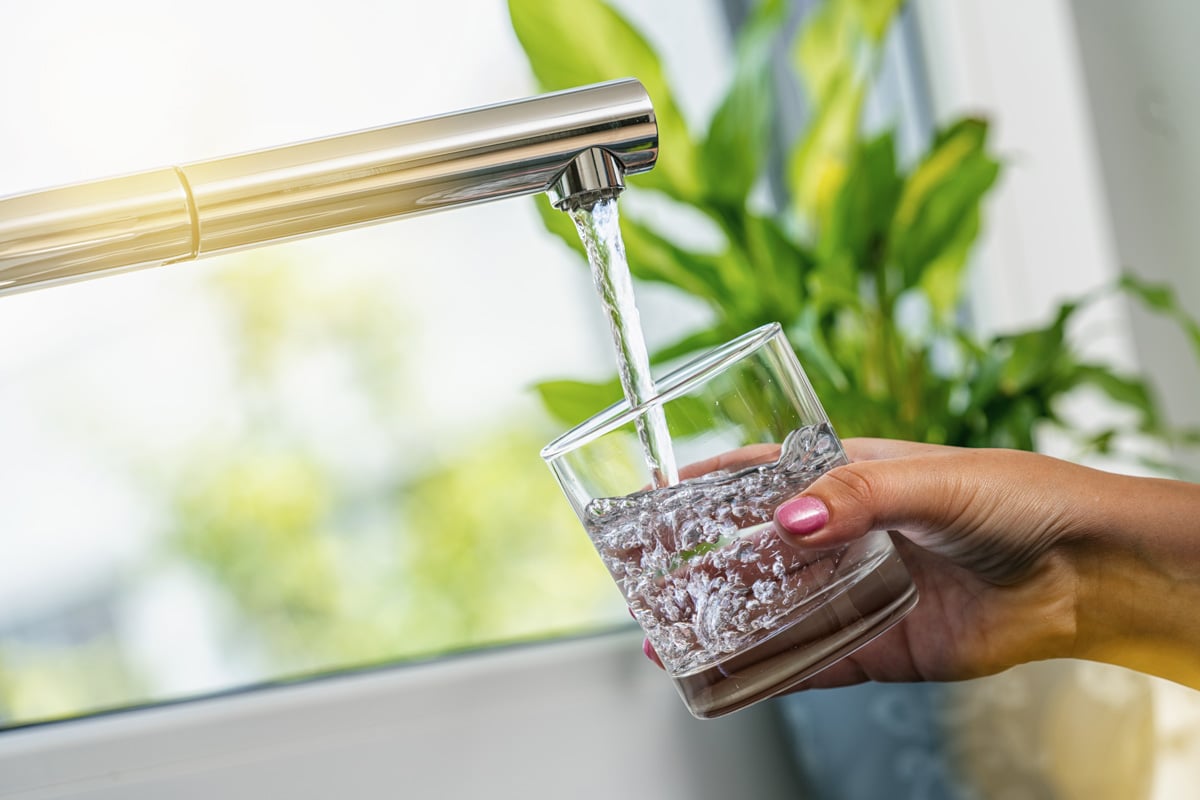
Your regular tap water should be pretty bland if it's processed and cleaned correctly. According to WebMD, you don't want tap water with a chemical scent or taste.
For example, if your drinking water has a strong smell or taste of the following chemicals: Chlorine. Petroleum or gasoline, it could be contaminated.
Unfortunately, not every water treatment facility is perfect. Sometimes, you might have one batch of water with a strong smell or taste, indicating something is off.
Even though we don't think about it, water contains endless ingredients. When we filter our tap water, we remove these unwanted additives, like salt, making the tap water taste better or "softer."
Some people may even notice a problem with their tap water while washing their face, hands, or body. Those with sensitive skin will see something is off if their skin begins blistering, rashing, or breaking out.
If your tap water tastes, smells or feels off: it probably is. In this situation, we recommend contacting your local water authorities and seeing what is happening.
Will A Water Filter Clean Contaminated Water?
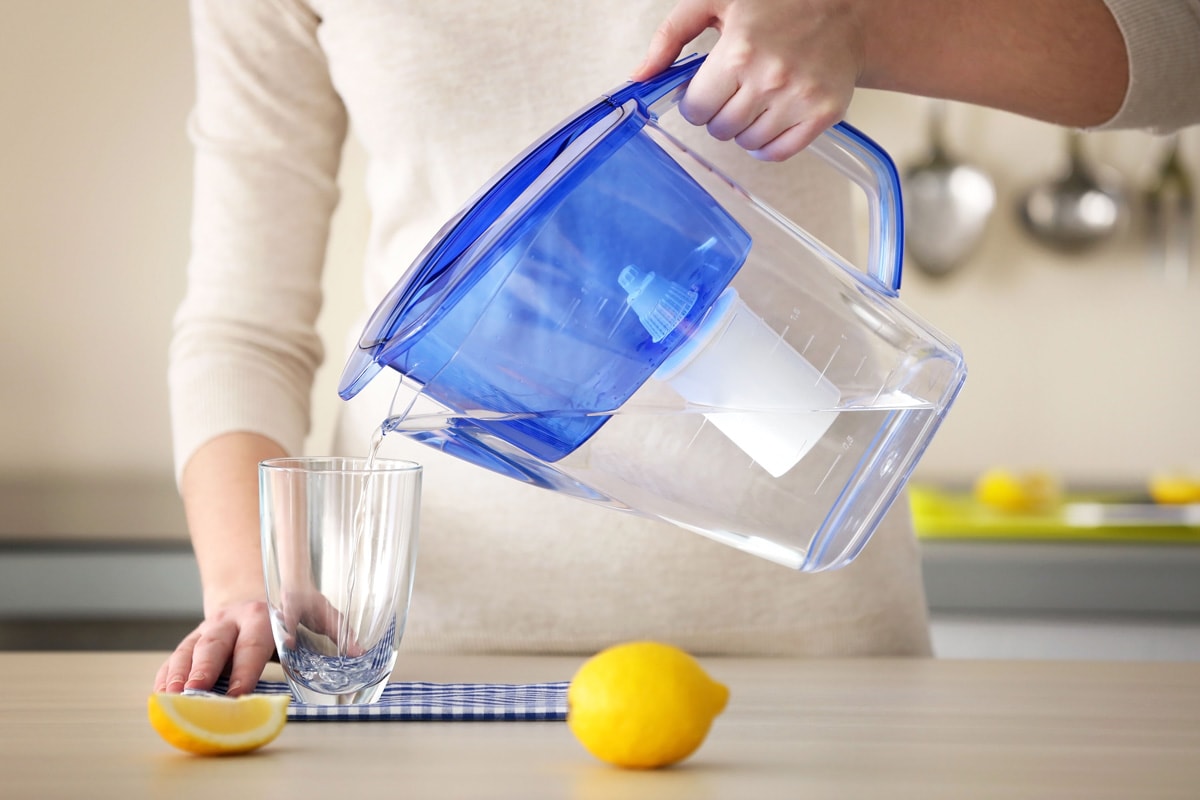
To a certain point, a water filtration system will clean contaminated tap water. Generally, your system will do the best job of reducing chemicals in water if it works through reverse osmosis.
Remember, this filter works well for removing salt, too, so there are plenty of reasons to have one. According to the CDC, no filters or treatment systems are 100% effective in removing all contaminants from water.
They also mention how not all water filtering systems are of the same quality. For example, you need to specifically shop for models that use reverse osmosis to get the deepest clean possible.
Even if something advertises itself as great for your health, that doesn't always mean it is. We recommend choosing long-standing brands for your filter and reading customer reviews before buying.
The last thing anyone wants is to install a filtration system to see it does not work correctly. Furthermore, you can start small with a Brita filtering container or something similar, so this doesn't need to break the bank.
Brita Large 10 Cup Water Filter Pitcher
This Brita water filter pitcher is made without BPA, cleans water, holds up to ten cups of water, is the #1 filter brand, reduces contaminants like cadmium, copper, chlorine, and mercury, and fits in your fridge.
Follow this link to view it on Amazon.
How Much Does It Cost To Install A Water Filter?
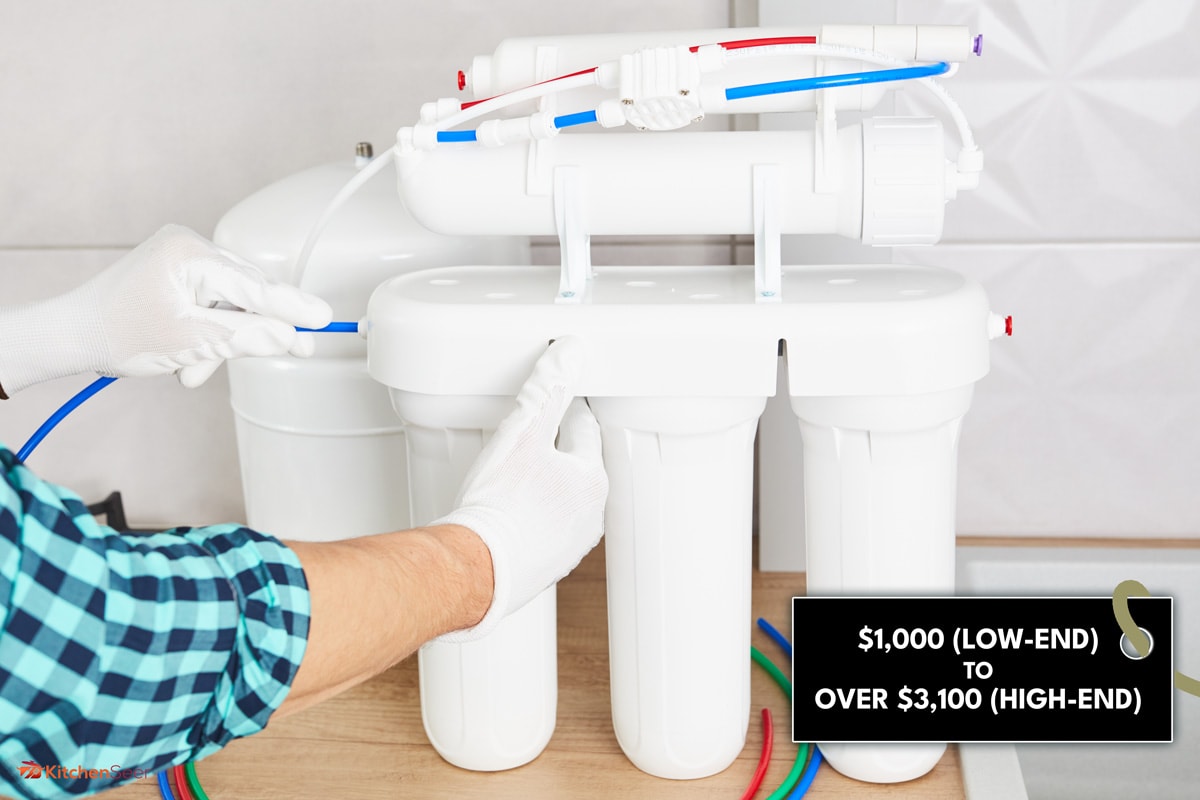
Depending on the size of your water filtration system, installing one could be pretty expensive. HomeAdvisor says you can typically expect to pay around $2,117 for the unit and installation.
More specifically, you can budget anywhere from $1,000 (low-end) to over $3,100 (high-end). Of course, these numbers aren't great news for people wanting cleaner water on a budget, but from a health standpoint, we would say this installation is well worth it.
Like most of the technology in our lives, a water filtering system can benefit us greatly: but at a sometimes steep price tag.
Luckily, purchasing a water filtering pitcher shouldn't cost more than $50, so that's the perfect starting spot for curious homeowners. Why not test a similar system before spending so much money?
You may also be able to finance your installation costs if the company you work with allows that, so payment plans should be a backup option.
Is It Worth It To Install A Water Filtration System?
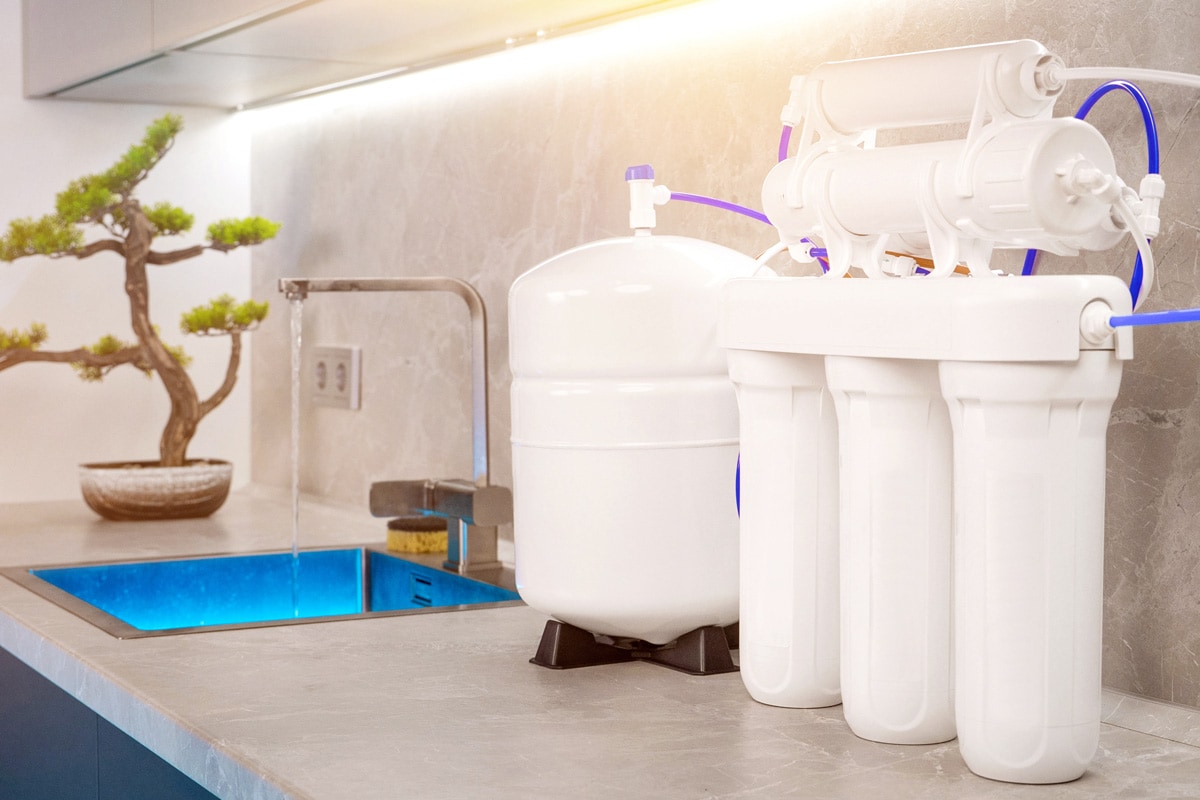
Overall, we would agree it is worth installing a water filtering system in your house. As we said, a filter may be your best bet if you have sodium restrictions in your diet or want cleaner, better-tasting water.
In general, cleaning your water through reverse osmosis will rid it of preservatives and impurities. That can change how you drink water and keep you and your home healthy.
Remember, this doesn't only apply to drinking tap water. If you have sensitive skin, super salty or impure water could cause an outbreak that nobody enjoys.
So, if you want to try filtering your water, we say go for it!
iSpring RCC7AK, NSF Certified 6-Stage Reverse Osmosis System
This reverse osmosis water filtering system is designed to restore the natural alkalinity, and mineral balance in the water, goes through six cleaning cycles, installs under your sink, and can remove 99% of over 1,000 harmful ingredients (including salt).
Check out this filtering system on Amazon.
To Finish Up
Investing in a filtration system can be worthwhile whether you want to filter the salt out of your tap water or have other quality concerns. We found that a water filter will remove salt if it uses reverse osmosis, so keep an eye out for those models.
Good luck, and enjoy your clean water!
While we have your attention, view these helpful related posts:
Is Fridge Water Distilled Or Filtered?
Does Fridge Filter Remove Chlorine? [Benefits Of Filtration Explored]



![Front of a starbucks store, What Water Filtration System Does Starbucks Use? [& Can You Get It In Your Home?]](https://kitchenseer.com/wp-content/uploads/2022/12/Front-of-a-starbucks-store-250x250.jpg)
![Installing of a fridge water filter on a modern appliance, Does Fridge Filter Remove Chlorine? [Benefits of Filtration Explained]](https://kitchenseer.com/wp-content/uploads/2022/05/Installing-a-fridge-water-filter-on-a-modern-appliance-250x250.jpg)
